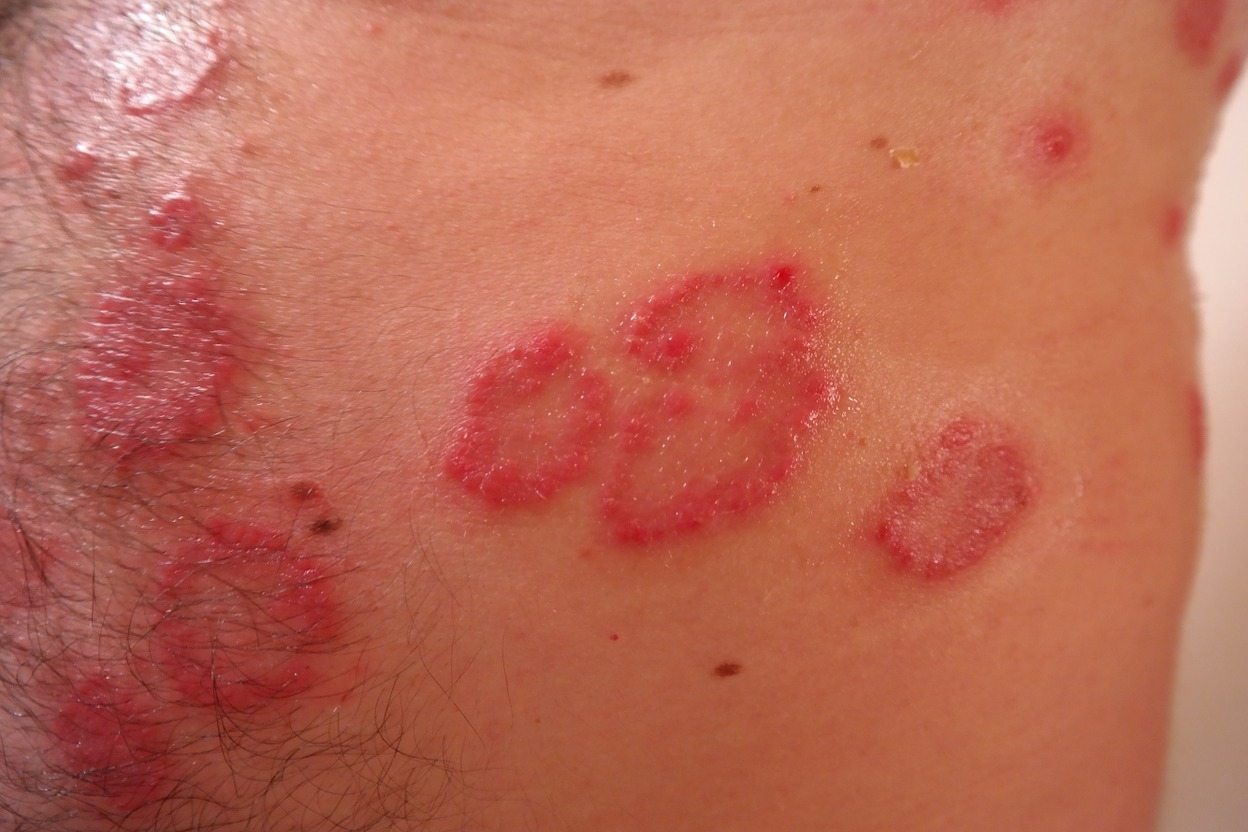
What is psoriasis?
According to the National Institutes of Health, about 3 percent of Americans live with a condition called psoriasis that causes red itchy scaly patches on the skin. This disease can be embarrassing for those who have it and sometimes leads to isolation and even depression, but the good news is doctors have come a long way in their understanding of this disease (and how to treat it).

Normally, skin cells develop in deeper layers of the skin and slowly rise to the surface over the course of about a month. With psoriasis, this process happens in a few days. The new skin cells pile up with the old skin cells, causing red flaky rashes.
The rashes most commonly appear on the scalp, knees, or outside of the elbow, but they can show up almost anywhere. Sometimes, psoriasis can create feelings of itching, burning, and stinging.
Scientists aren't sure what causes psoriasis, but MedlinePlus suggested genetics and an immune system response both play a role. Regardless of the cause, the disease is not contagious.
What are complications of psoriasis?
The National Psoriasis Foundation estimated about 30 percent of people with psoriasis will also develop psoriatic arthritis. Like other forms of arthritis, this condition causes swelling of the joints, pain, and stiffness.
Psoriasis also seems to increase the risk of other health problems such as diabetes, heart disease, and depression. Closely following your doctor's treatment plan (and their recommendations for a healthy lifestyle) can help mitigate those risks.
How is psoriasis treated?
First, your doctor will want to confirm your skin problem is psoriasis, especially since the disease can look similar to other skin conditions like eczema. Your physician will likely perform a physical exam and ask whether you have any family members with psoriasis. A dermatologist might take a sample of the affected skin and examine it under a microscope to help make a diagnosis.
Treatment depends on the severity of your disease, which is determined by how much skin is affected and in what areas the rashes appear. For mild psoriasis, lotions and creams might work to calm the skin. Phototherapy is another effective treatment that uses UV light to lessen inflammation and heal the skin.
More severe cases in which the psoriasis is widespread might require prescription-strength creams or medications. Newer medications target the immune system cells in an attempt to correct the overreaction that causes the rash.
Symptoms usually come and go and can be triggered by dry skin, stress, or illness. If you notice flaky painful rashes that appear on your skin but are slow to heal, you might want to see a dermatologist for an evaluation. The dermatologists at Reid Dermatology will work with you to manage outbreaks and lessen the appearance of irritated skin. To request an appointment, call (765) 966-1600 or go to reidhealth.org/services/dermatology.

